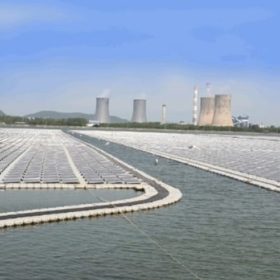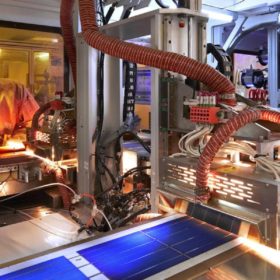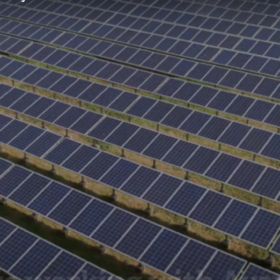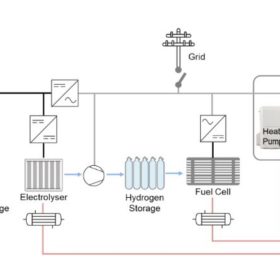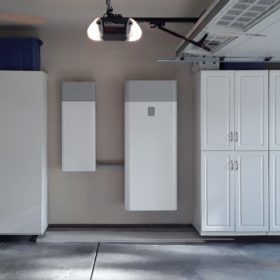NTPC commissions 22MW floating solar capacity in Kerala
The capacity is part of NTPC’s 92MW floating solar project at Rajiv Gandhi Gas based Power Station in Kayamkulam.
IREDA to lend INR 268 crore to BluSmart Mobility
The integrated EV ride-hailing and charging company will use the amount to purchase 3,000 all-electric cars.
India’s solar report card for 2021
India added 10.4GW of solar power generation capacity in the January-December period of 2021. Out of this, 42% was installed in Rajasthan alone.
Trina Solar achieves 25.5% efficiency in n-type TOPCon solar cell
The result was confirmed by the National Institute of Metrology of China. It was achieved with a cell size of 210x210mm.
French consortium develops self-cleaning solar module coating
French chemical company Axcentive and solar module manufacturer Photowatt have developed a PV panel coating based on photoactive nanotechnology. The coating relies on a super-hydrophilic surface that makes the water spread out on the module surface immediately, thus avoiding light scattering effects upon rain.
Over ten lakh electric vehicles on Indian roads
India has 10,76,420 registered electric vehicles, with 1,742 public charging stations operational as of March 21, 2022.
Fire incidents highlight ‘burning’ issues in India’s EV ecosystem
Although we may have just about commenced our run in the electric vehicle (EV) race, it is critical that we jump-start the pace of adoption by enhancing the overall perception of EVs from a safety and longevity standpoint.
British International Investment commits US$89 million to scale renewable energy generation in India
The UK investor (formerly known as CDC Group) has committed a $47 million follow-on investment in Fourth Partner Energy to build 294MW of greenfield renewable power capacity. Another $42 million will go to Italian power utility Enel’s India arm Thar Surya 1, to support the development of a 300MW greenfield solar project in India.
Designs for solar+storage+hydrogen systems in buildings
German scientists have tried to determine whether a PV system linked to a small electrolyzer, a fuel cell, and lithium-ion batteries could fully power a grid-connected household. Their new proposal consists of a 6.8kW PV array, a 5kW electrolyzer, a 1.24kW fuel cell system, and battery storage.
SunPower launches whole-home backup solution
The US manufacturer has expanded the battery capacity options for its SunVault Storage product, up to 26 kWh and 52 kWh configurations.
